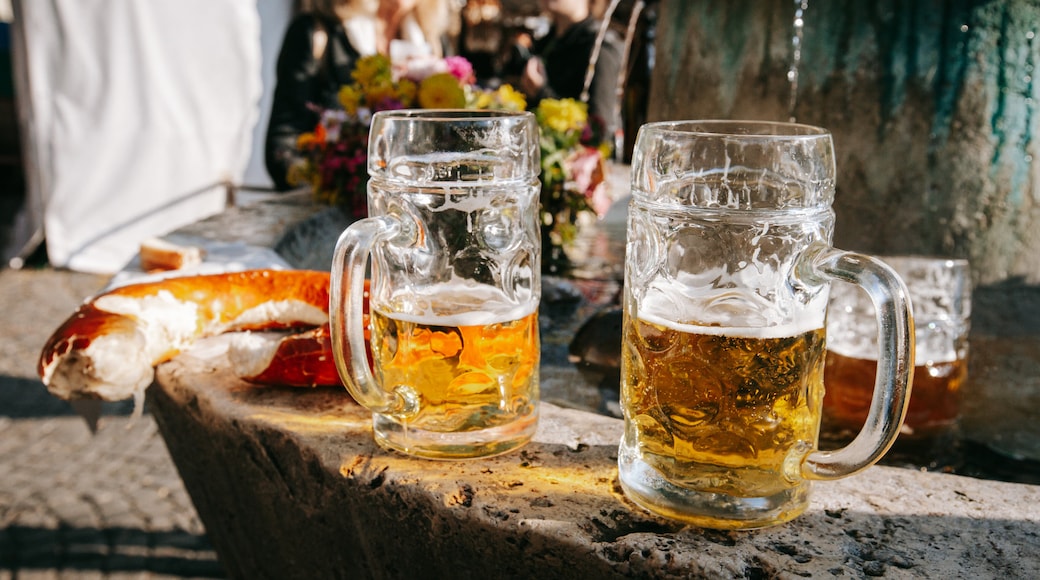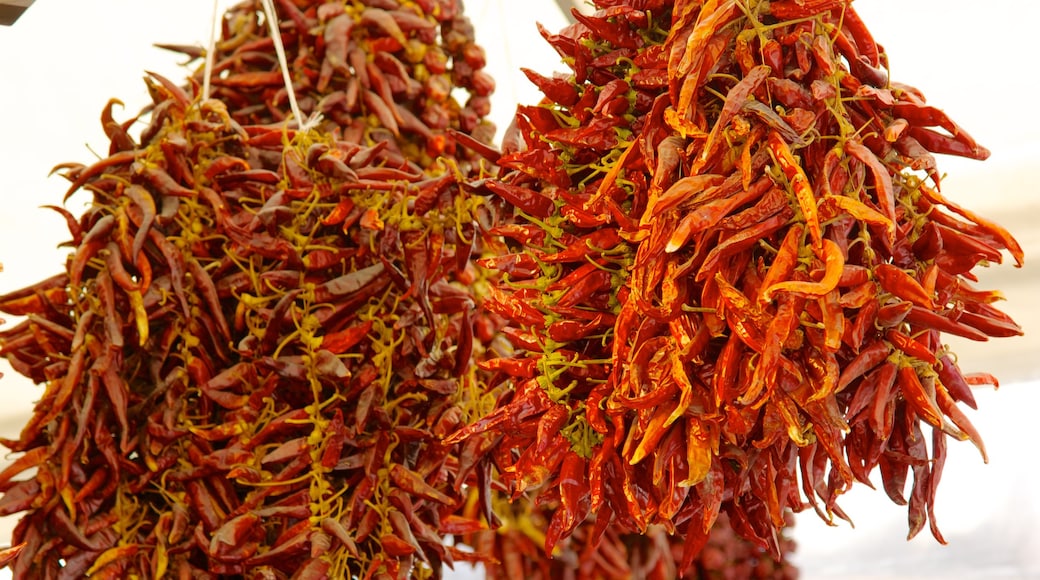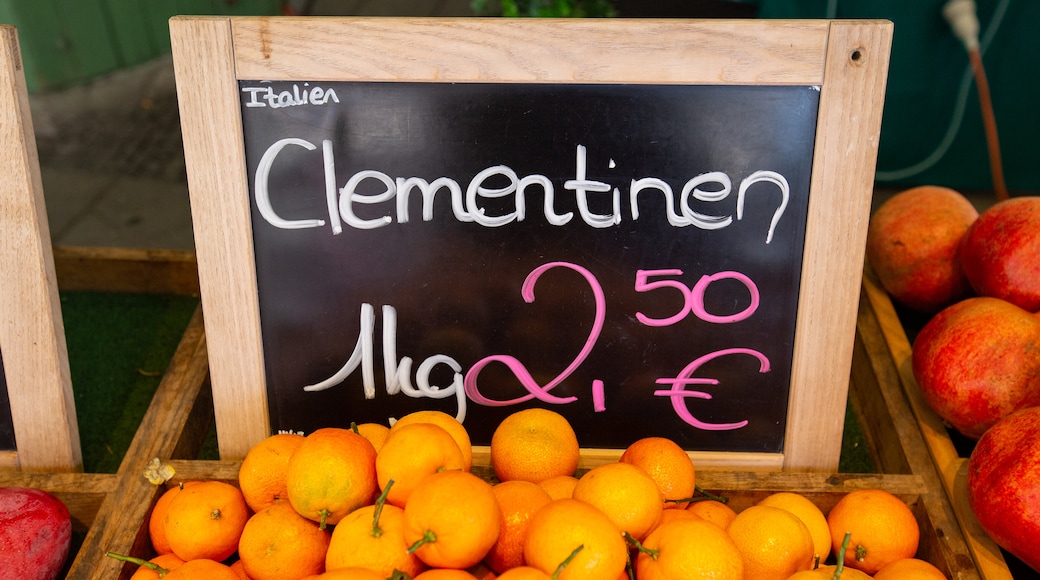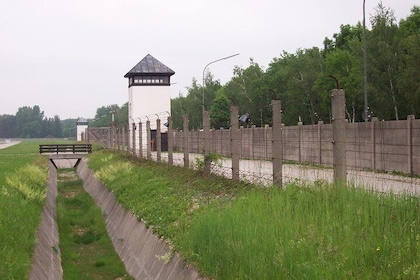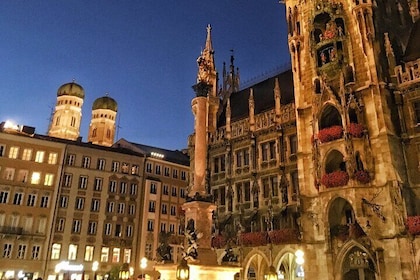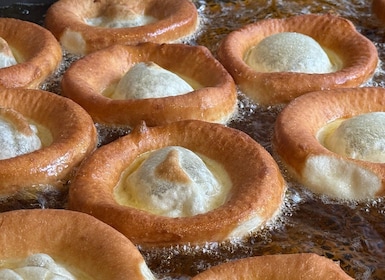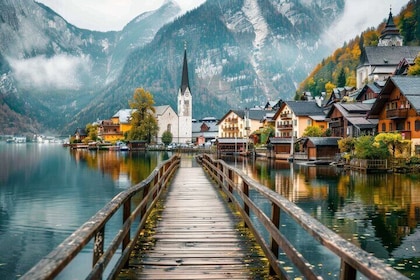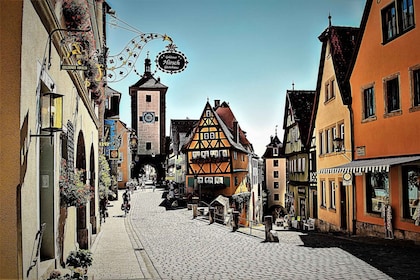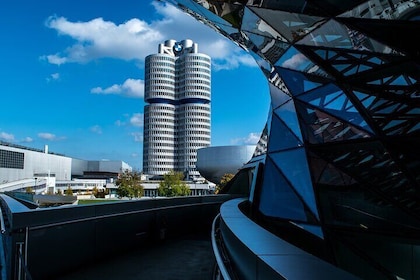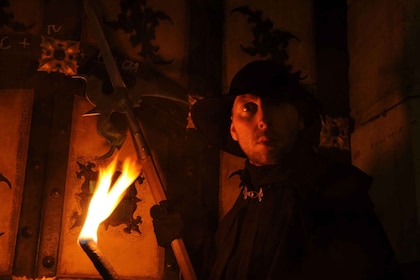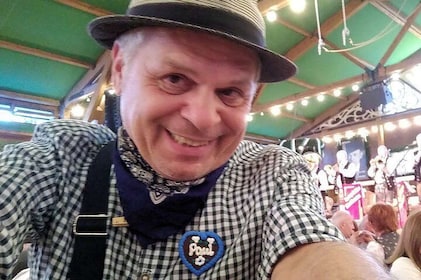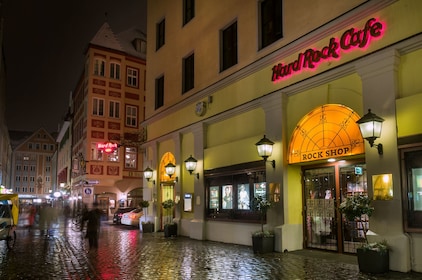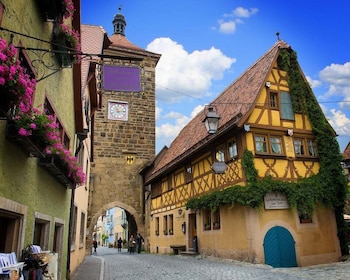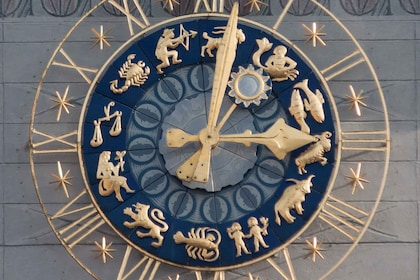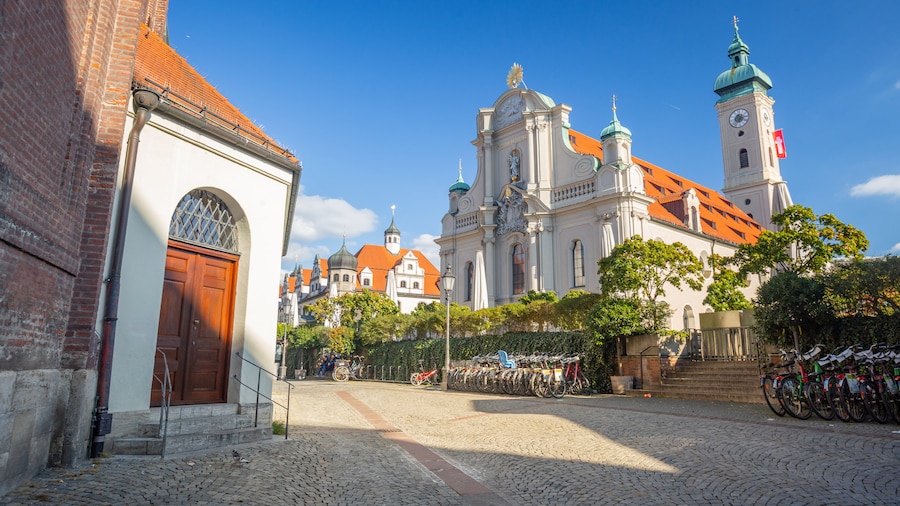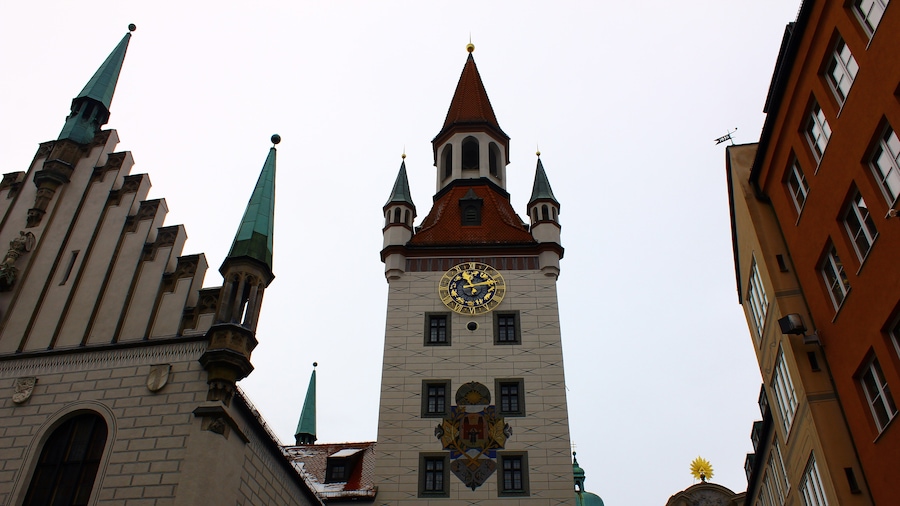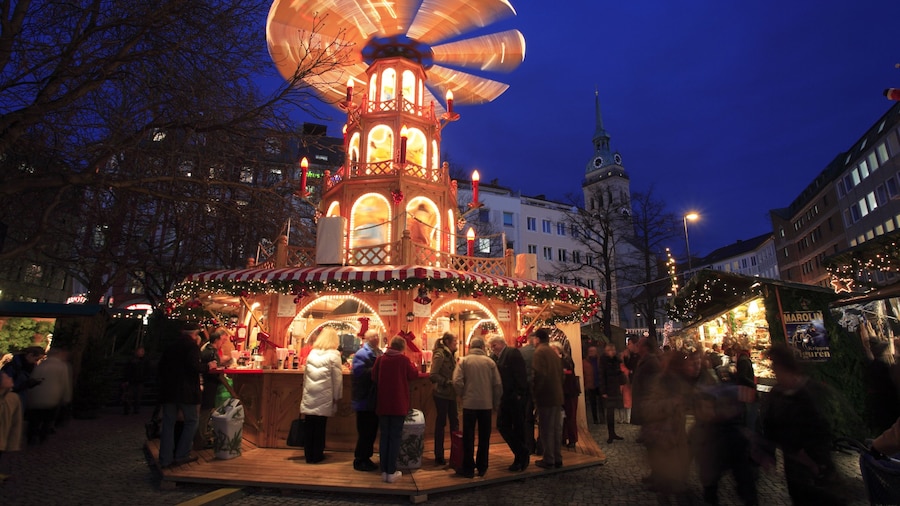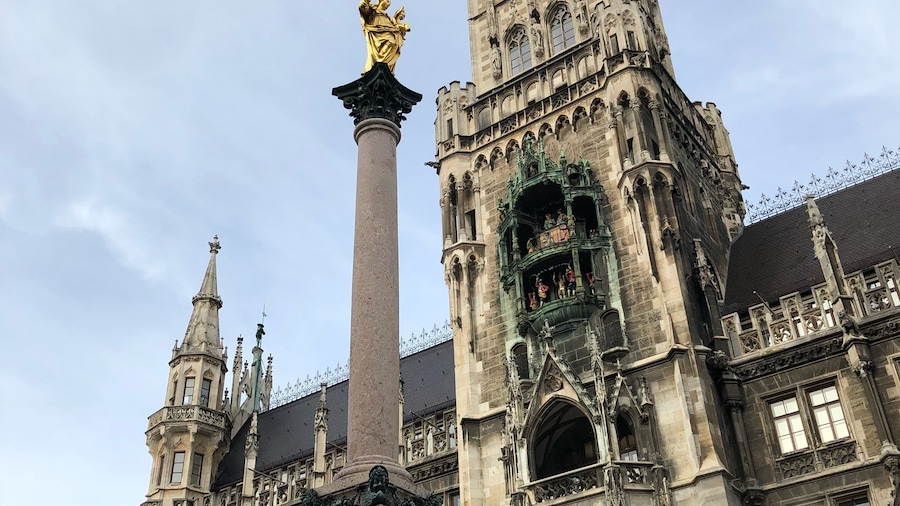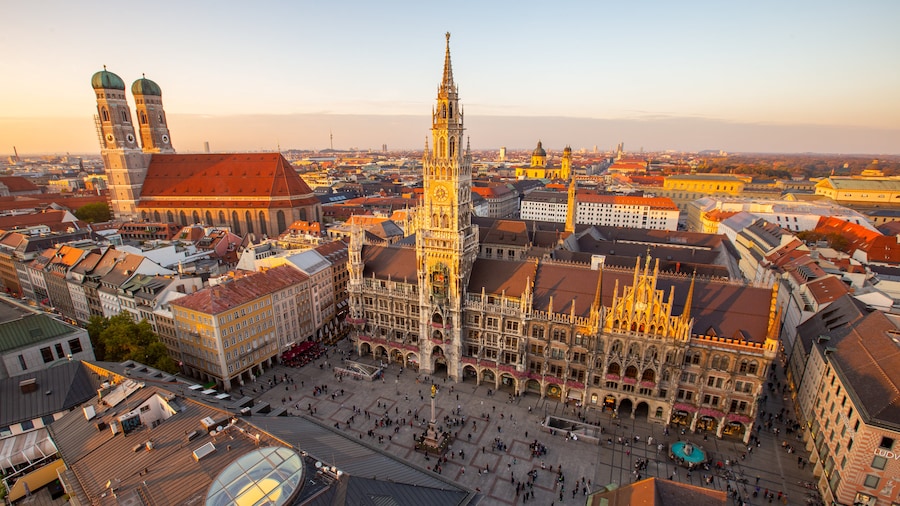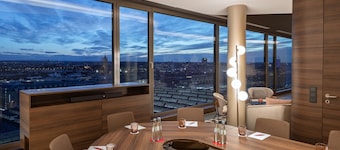Gather all the ingredients for a perfect picnic or simply wander around at this lively market that stocks foods both exotic and local.
In 1807, King Maximilian I decreed that Munich’s food markets needed to be moved from the Marienplatz to a larger area, which is now known as the Viktualienmarkt. Viktualien is an old German word meaning “victuals” or “provisions.” Today, this market is still the place to stock up, although there is now a much wider range of provisions to choose from.
The Viktualienmarkt is still primarily a food market. Its vendors sell fresh fruits, vegetables, meat, dairy products, honey, spices, seafood and more. The market also places an emphasis on stocking ingredients that are difficult to find. Browse around the 140 stalls and stores, trying out the local food. Make sure you sample a Bavarian delicacy called the Leberkäse, a type of meatloaf that is usually served on a bun.
A traditional element of the market is the large maypole in the centre, which is painted in the Bavarian colours of blue and white. Maypoles were used in previous times to signify which crafts and industries are important to the local area. These emblems are still visible today on the Viktualienmarkt’s maypole. Visit on May 1 for traditional May Day celebrations. The market also plays host to traditional events. Visit the market on Shrove Tuesday to see “the dance of the market women.”
The Viktualienmarkt beer garden seats many hundreds of people and is regarded as one of Munich’s most central beer gardens. In Bavaria it is common for guests to bring their own snacks to enjoy with purchased beverages. Pick up some local cheese and sausages from the market and take a seat in the beer garden.
The Viktualienmarkt is open every day except Sunday. While in the area, foodies should also head to the Schrannenhalle, a former granary just next door that has been converted into a bright hall filled with coffee stands and delicatessens. Both destinations are just a short walk away from the Marienplatz.

